Installation
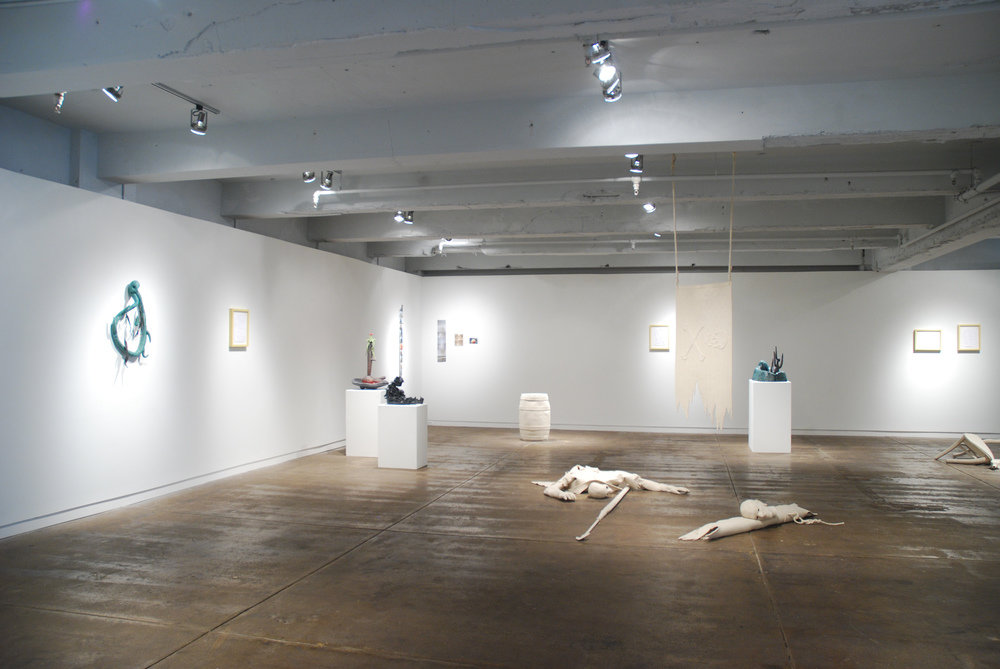
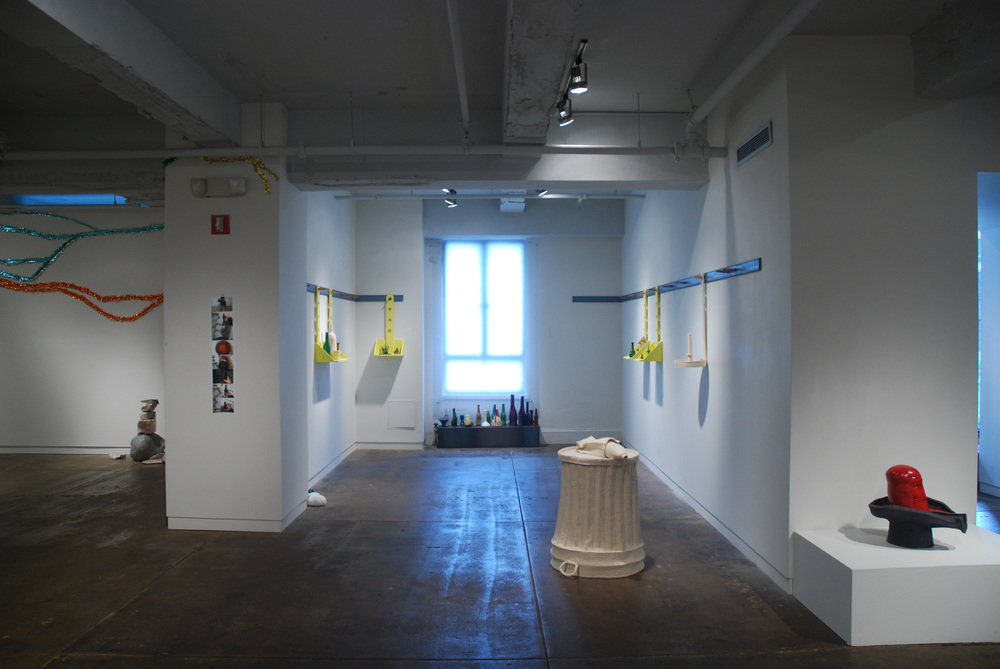
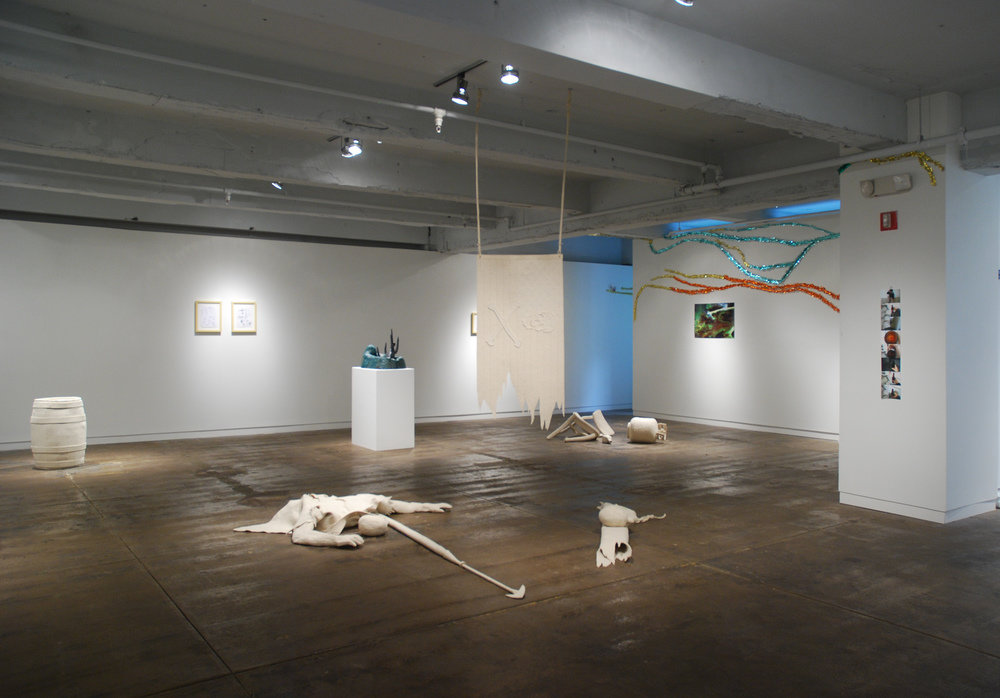
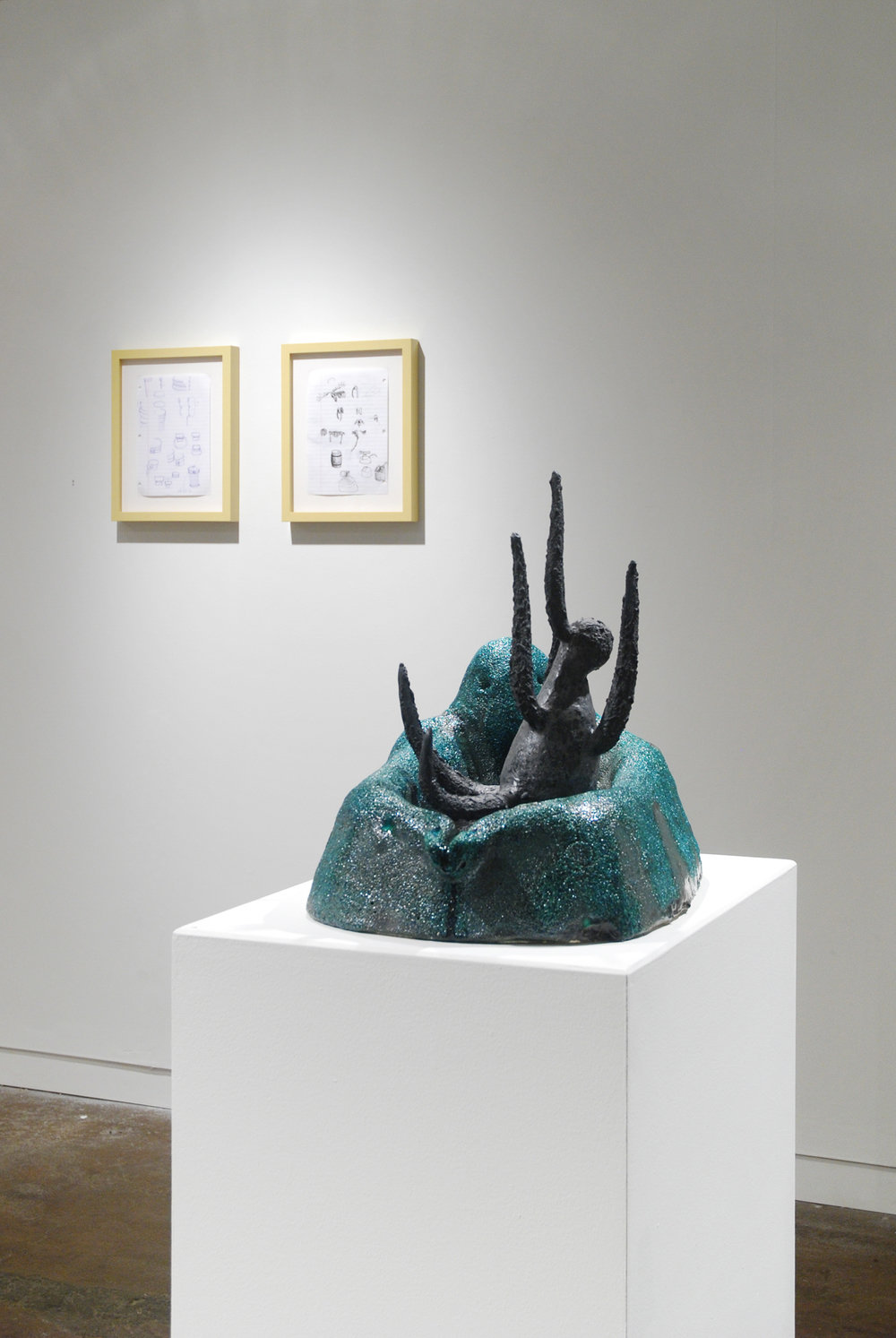
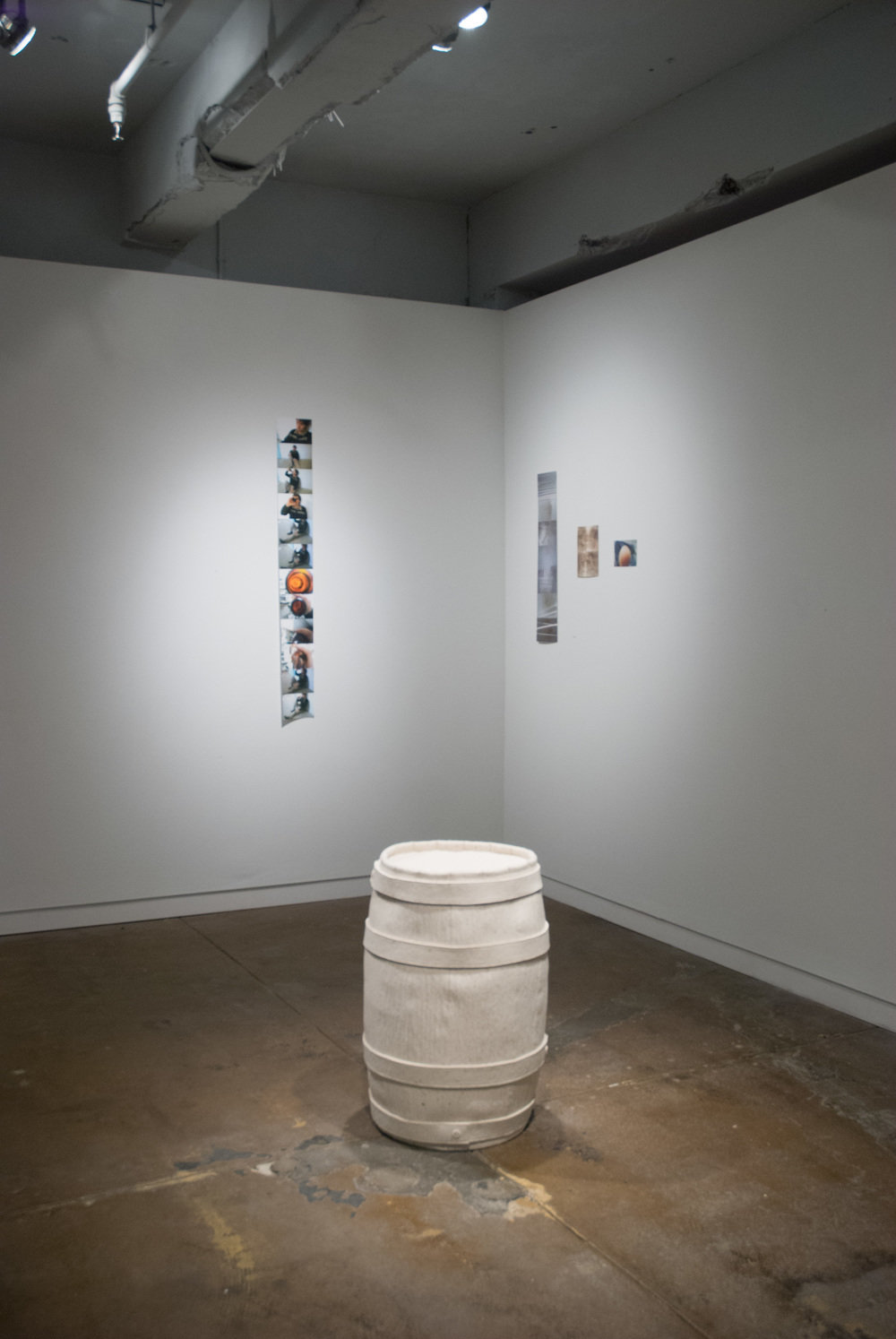
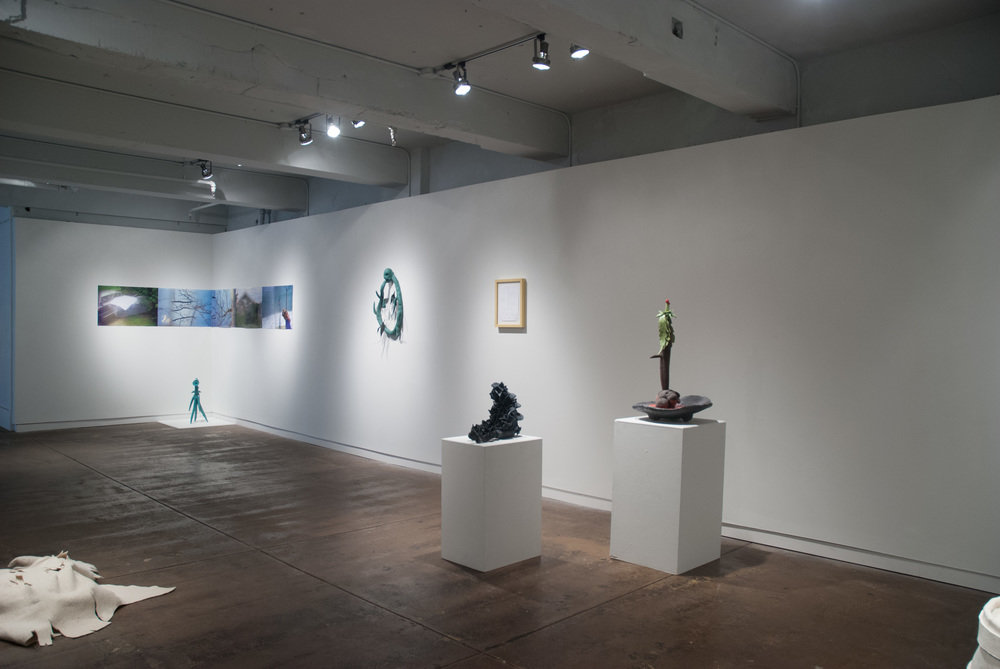
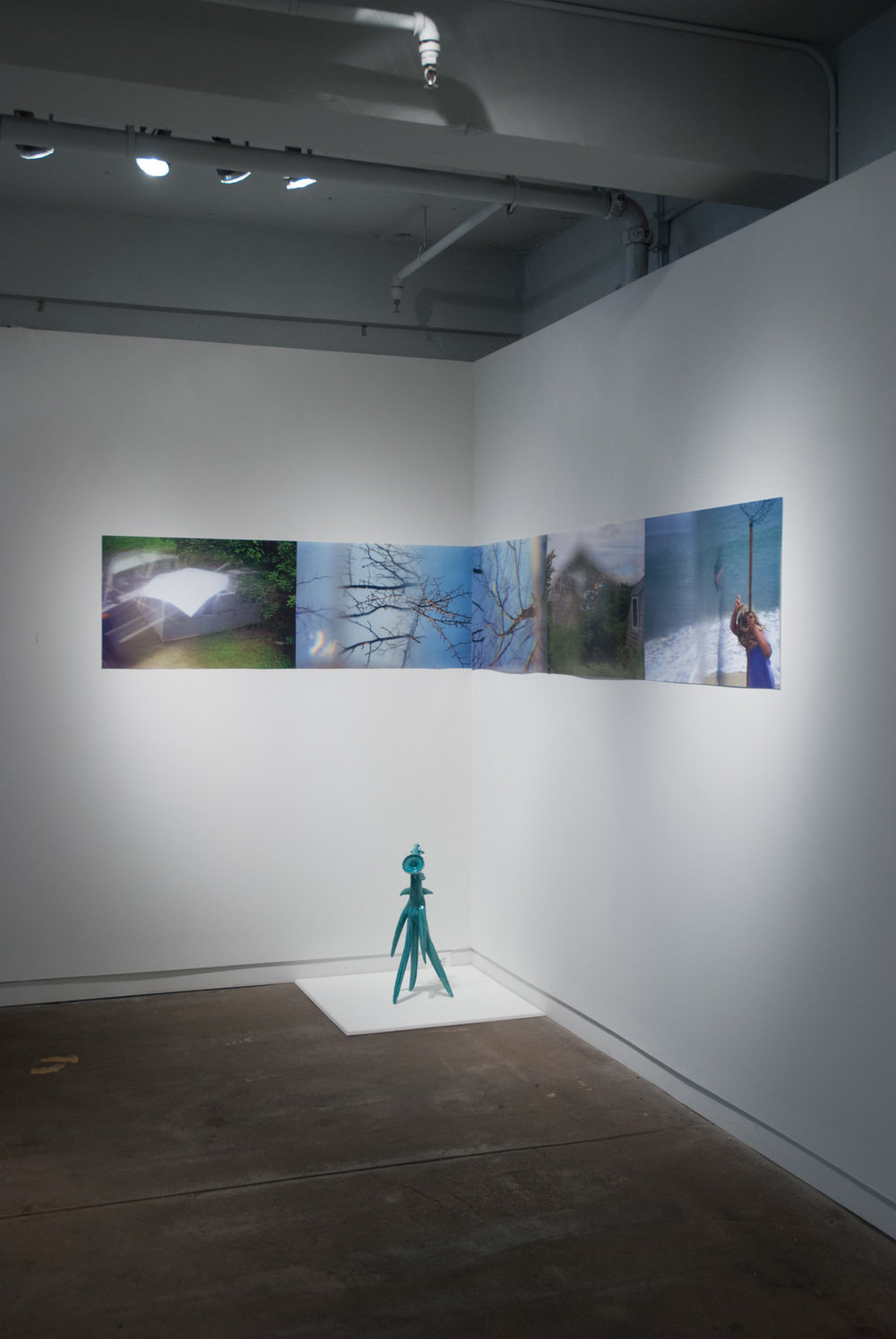
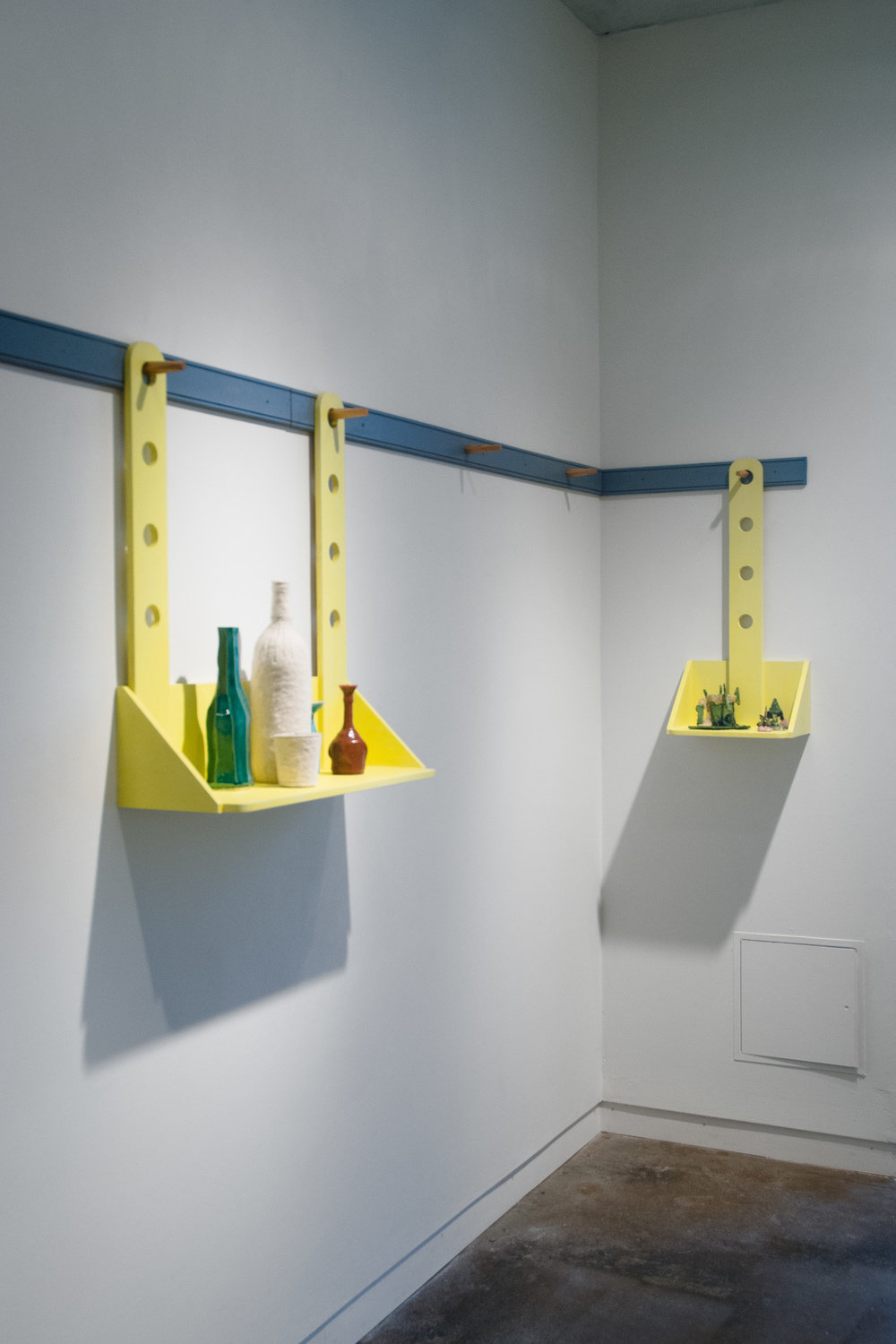
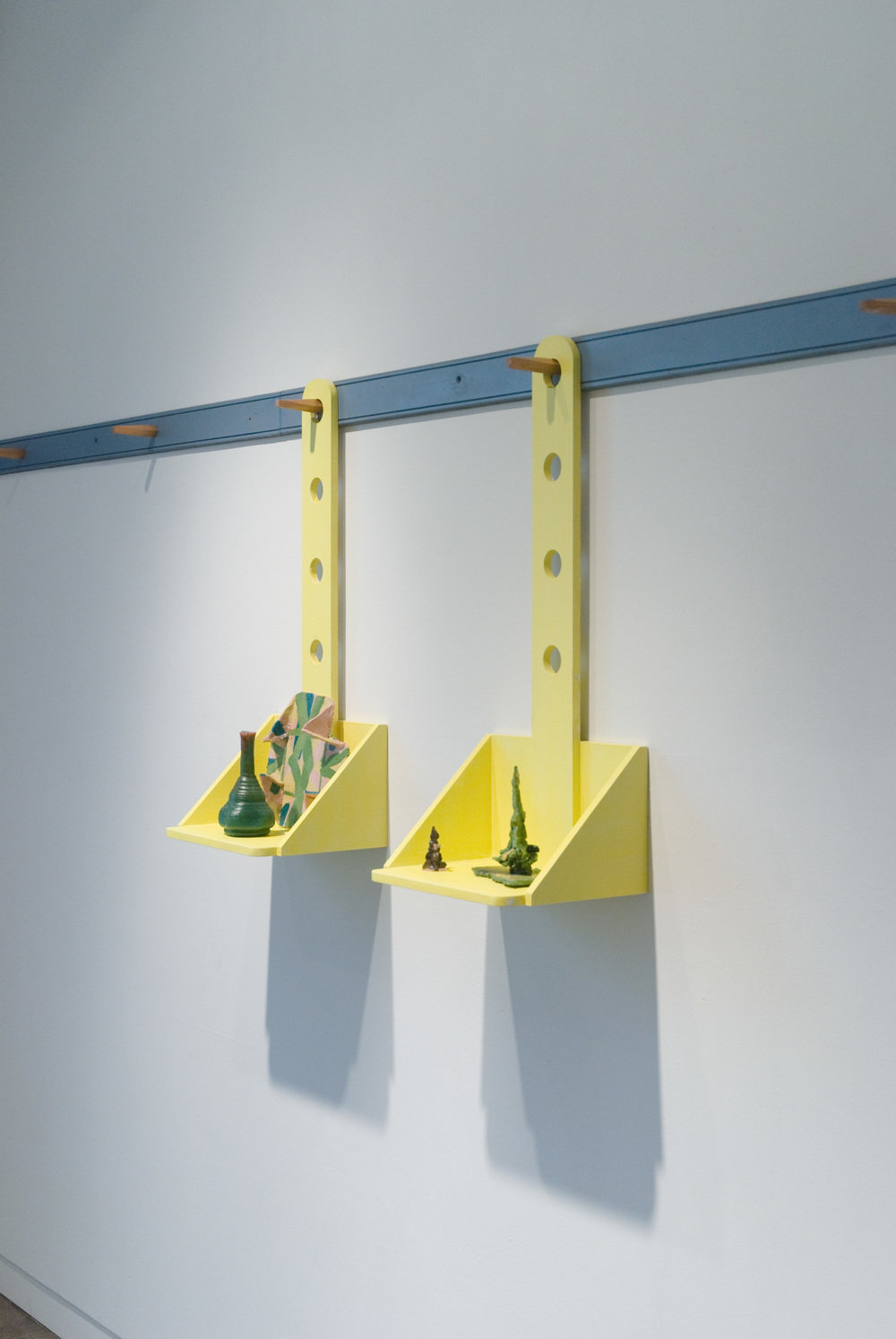
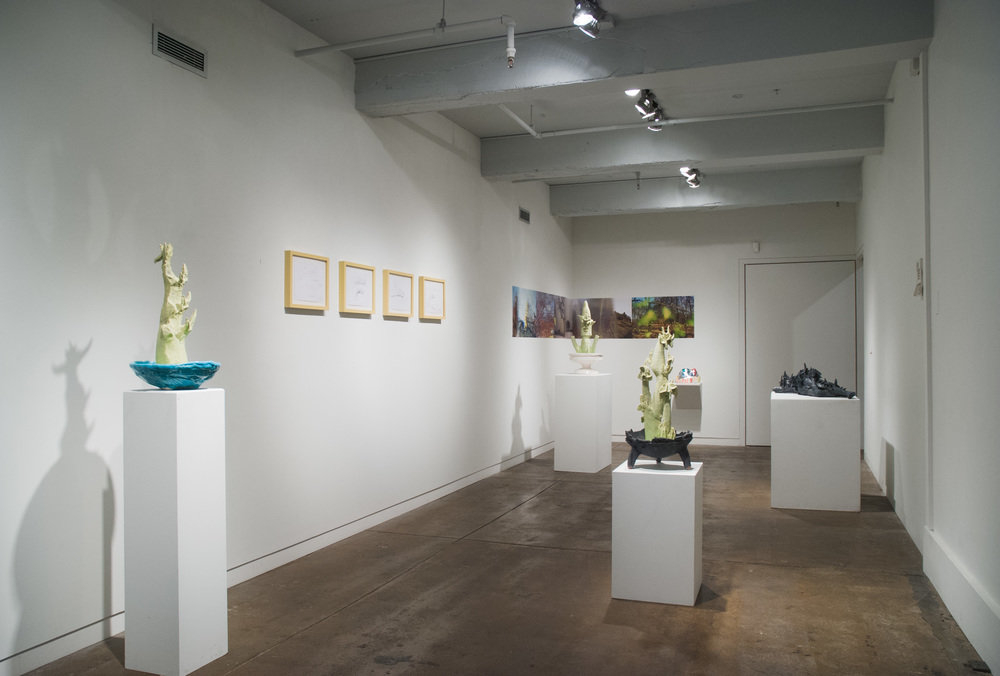
May 14 — Jun 13, 2009
Featuring work by: Paul Swenbeck, Tristin Lowe
Fleisher/Ollman is pleased to announce an exhibition of new work by Tristin Lowe and Paul Swenbeck, Philadelphia artists who share a common vantage point inspired by friendship, Yankee ingenuity and a love for the disappearing natural world. This show-Lowe's second outing at the gallery and Swenbeck's first-presents a phantasmagoria of ideas, from ghost nets filled with the flotsam and jetsam of extinct species, to magic circle still-lifes, to science fiction birth allegories.
Lowe continues his work in felt, making the mundane detritus of casual consumption into a ghost shadow of inscrutable beauty. Lowe purposefully uses this humble material, one of the oldest forms of fabric known to humankind, to construct a propane tank, a figure and a skull. Made on a sewing machine passed down from the artist's mother, these carefully crafted, life-sized objects appear to have washed up on shore. According to the artist, this "shipwreck" is influenced by such unsavory things and events such as eight years of the Bush administration, a recent space event involving the collision of American and Russian satellites which resulted in significant debris orbiting the earth, and the floating island of trash debris-twice as large as the state of Texas-that is drifting in the Northern Pacific Ocean.
Mocha Dick refers to the great and infamous leviathan that served as the model for Herman Melville's Moby Dick, and which was described by the explorer Jeremiah N. Reynolds in the May 1839 issue of The Knickerbocker, as "an old bull whale, of prodigious size and strength...white as wool." For approximately 30 years, Mocha Dick terrorized those whalers who attempted to net him. In Lowe's work, Mocha Dick is a stand-in for the unfortunate struggle between man and nature.
As the news media turn their cameras to recent piracy off the coast of Somalia, the reference is timely as it invokes the harshness of capitalism (according to the artist, piracy and its close cousin-government sanctioned privateering-can be seen as an early predecessor to brutal free market economics), the price of consumption and the wild freedoms tempered by the harsh constraints of the sea.
The second half of the exhibition's title, The Invisible World, references Swenbeck's long- term interest in the occult, witchcraft, pagan mythology, the spiritual and the sacred. In opposition to Lowe's work, where the scars of society dominate the landscape, Swenbeck creates a world in which nature takes back a bit from civilization.
Swenbeck was born in Salem, Massachusetts, the site of the infamous witch trials that occurred in the 1690s, and as a teen worked at the Witch Dungeon Museum. He remains fascinated by the fact, fantasy and fiction associated with witchcraft and its rituals. His ceramic works resemble mandrake plants with roots suggestive of human figures. These plants have hallucinogenic properties, and have long been used in witchcraft and magic. Swenbeck also cites a reverence for nature and the animistic details of the landscapes, such as boxwork (an uncommon type of erosion pattern found in wind caves) and cairns (manmade piles of stones used as landmarks for a burial site, to mark the summit of a mountain, or in astronomy). Additionally, the artist is heavily influenced by his travels in India and Nepal. Captivated by roadside shrines to gods and deities, where statues are ritualistically painted (a sign of reverence) until their bodies, over time, become featureless "blobs" but eyes remain untouched, the artist will create an installation of disembodied, yetpiercing eyeballs buried in the gallery walls.
Throughout the entire gallery space, Swenbeck will install a colorful creeping vine made from aluminum foil reminiscent of invasive kudzu or poisonous ivy. Also on view will be a series of photographs taken by the artist over the past twelve years, that utilize the low-tech device of a prism to tease out apparitions, disjunctures, time warps and other things unseen in the landscape.
About the Artists
Tristin Lowe is a multi-disciplinary artist whose practice delves into the crude and rude, absurd and abject, pushing low-brow, low-tech methods and materials toward unexpected ends. The artist makes drawings from grease paint and fire, uses edible materials such as butter, chocolate and alcohol to make hilarious and sad installations (beds that wet themselves, pillows that smoke), and handcrafts exquisite reproductions of both animate and inanimate objects (a sewn felt, upended trashcan, a mangy, fake-fur fox, a two-story folding chair). Lowe's wry re-imaginings lead the viewer down a path littered with chaos, comedy and failure.
Born in Boston in 1966, Lowe received his BFA from Massachusetts College of Art and studied at Parsons School of Design and Skowhegan School of Painting and Sculpture. He has exhibited his work extensively in Philadelphia, including at Fleisher/Ollman Gallery, Vox Populi, Girard College, The Rosenbach Museum and Library, The Samuel S. Fleisher Art Memorial, Basekamp, The Fabric Workshop and Museum, The Project Room, Abington Art Center, and Nexus Foundation for Today's Art. He has exhibited nationally and internationally at Royal Hibernian Academy, Dublin; New Langton Arts, San Francisco; University of California, San Diego; Hudson D. Walker Gallery, Provincetown; Museum of Contemporary Art, Australia; and the Centre d'Art Contemporain, Switzerland. He has been awarded a Pew Fellowship, Provincetown Fine Art Work Center Fellowship, and The Fabric Workshop and Museum and Girard College Residencies. He was co-founder and co-director of the non-profit gallery Blohard. Lowe's work is in the collection of the Philadelphia Museum of Art, The Pennsylvania Academy of the Fine Arts and The West Collection, as well as other private collections.
Concurrent with this exhibition at Fleisher/Ollman, Lowe's newest work, a 52-foot long felt sperm whale, Mocha Dick, will be on view at the Fabric Workshop and Museum.
Paul Swenbeck's work combines sculpture, painting, photography and craft to create installations that explore occult and spiritual themes, filtered through his own idiosyncratic perspective. His works is represented in the West Collection in Oaks, Pennsylvania and The New Museum of Contemporary Art in New York. Recent exhibitions include a collaboration with his wife, Joy Feasley, at the Institute of Contemporary Art, Philadelphia, as part of Locally Localized Gravity in which the two built a solar oven in a greenhouse that was used in a celebration of the pagan holiday, Imbolc. Additionally, Swenbeck's work is currently included in Dirt on Delight: Impulses that Form Clay, also at the Institute of Contemporary Art, which will be traveling to the Walker Art Center in July. Swenbeck graduated with a degree in ceramics from Massachusetts College of Art in 1991.
For additional information on the exhibition, please contact Amy Adams or Claire Iltis at 215.545.7562.









